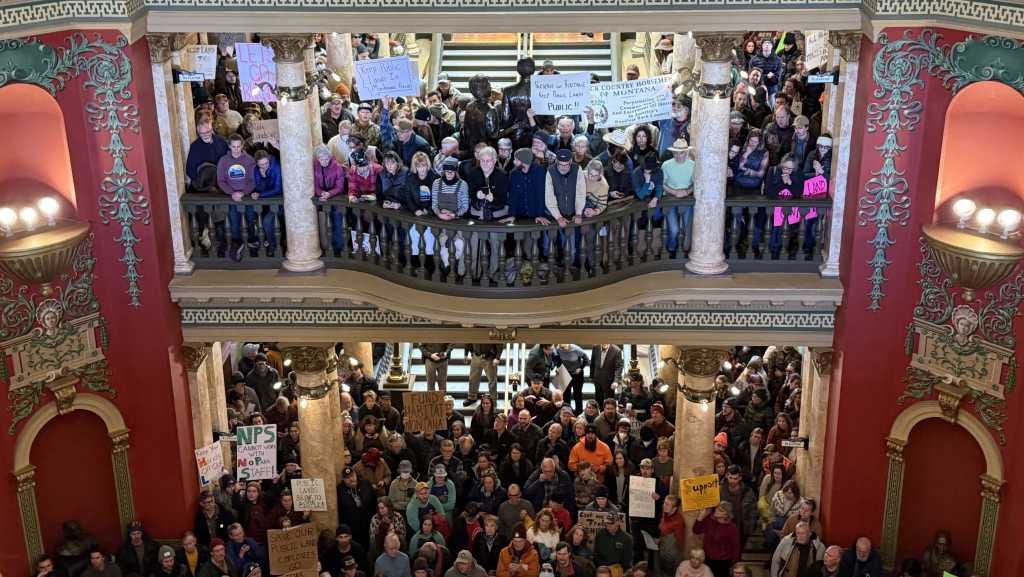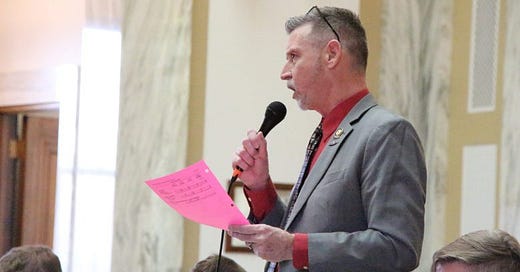Montana Lawmakers Won’t Back Utah in Land-Transfer Lawsuit
Two-thirds of lawmakers in the House of Representatives voted down HJ 24
The Montana House of Representatives has declined to back Utah in its legal bid to assume ownership of 18.5 million acres of federal land inside that state’s borders.
Lawmakers on Tuesday rejected a proposal by Representative Tom Millett, R-Marion, to support Utah’s assertion that the “unappropriated” land administered by the federal Bureau of Land Management belongs under state control.
During floor debate on House Joint Resolution 24, Millett underscored that his resolution is not about selling off federal lands. Instead, he characterized it as an attempt to answer a constitutional question affecting all Western states. Earlier this year, Utah received notice that its desire to take that question straight to the U.S. Supreme Court didn’t develop as planned. In January, the nation’s highest court declined to take the matter up before a lower court issues a ruling.
“There are 18.5 million acres [of unappropriated land] in the state of Utah, and the federal government reaps $187 million in royalties from that unappropriated land. Montana? We have 8 million acres that are unappropriated. They reap $55 million,” Millett said during debate Tuesday. “How many roads can we build with $55 million? How many schools can we fund with $55 million?”
Millett argued that Western states are “deprived of basic and fundamental sovereign powers” due to the inability to tax federal land and exercise eminent domain to direct infrastructure development on them.

Representative Debo Powers, a freshman Democratic lawmaker from Whitefish, countered that Montanans have “overwhelmingly rejected transfer time and time again” and highlighted voters’ appetite for considering their elected officials’ record on conservation issues when they fill out their ballots.
“That’s why so many political candidates in Montana — from every political party — pledged to keep public lands in public hands. Maybe you were one of those candidates,” she said. “Now is your opportunity to show your constituents your commitment by voting against this resolution. And believe me: the voters are watching on this one.”
Powers also argued that the financial calculation should work the other way, given the federal funding supporting firefighting and trail and facility maintenance.
“These costs would put a tremendous pressure on the states to sell off these lands,” she said. “You could be finding mega-mansions where you once enjoyed hunting and fishing on your public lands.”
Representative Paul Fielder, R-Thompson Falls, argued that the debate is less about keeping “public lands in public hands” and more about “keeping federal lands in federal hands.”
“The states can manage the lands that are transferred as they choose,” he said. “I kinda like managing the land within my property boundary, and I think the states should be able to manage land in their borders.”
The House of Representatives’ 34-66 rejection of HJ 24 came three days after the House Energy, Technology and Federal Relations Committee forwarded the proposal to the House on a party-line vote. Last week, dozens of Montanans spoke against the measure, which failed to garner proponent testimony.
Two Republicans flipped their votes Tuesday, joining 22 of their GOP colleagues and all of the chamber’s Democrats in voting the measure down.
Conservation organizations celebrated HJ 24’s defeat, issuing emailed press releases shortly after the measure’s floor vote.
Montana Conservation Voters’ Executive Director Whitney Tawney described the development as a “major victory.”
“We are proud of the lawmakers who stood up for our public lands and denied this misguided attempt to privatize our shared resources,” she wrote. “Public lands are the cornerstone of what makes Montana special, and today, Montana’s lawmakers listened to the people, not special interests.”
Noah Marion, Wild Montana’s political and state policy director, echoed that assessment.
“HJ 24 did one thing: lay the groundwork for privatizing our public lands. Utah’s lawsuit isn’t about answering a constitutional question; it’s about opening a back door to transfer. By rejecting this resolution, lawmakers have aligned themselves with Montanans and made it clear that we will never allow our public lands to be sold off to the highest bidder.”
By Amanda Eggert for Montana Free Press
Montana Independent News Addendum:
Carbon County’s Brad Barker, Montana House Representative for District 55, voted against HJ24.




